#how to answer interview questions
Explore tagged Tumblr posts
Text

Yokoyama explains Nishitani III’s name, toys with Nishitani and Sagawa being alive
#yakuza#like a dragon#rgg#ryu ga gotoku#yakuza 0#like a dragon gaiden#homare nishitani#nishitani homare#homare nishitani iii#nishitani homare iii#tsukasa sagawa#sagawa tsukasa#masayoshi yokoyama#hiroyuki sakamoto#my translations#original#i love that the interviewer was in disbelief that they just dropped all this. like ok#like i cannot overstate how this is an answer to One question
138 notes
·
View notes
Text



#sam reid#interview with the vampire#iwtvedit#iwtv#*#im hmm ehh that this question was even asked#it puts actors in a difficult position because what are they supposed to say#sam reid was very nice with his answer VERY GENEROUS but they should not bring these questions to actors#it wont change anything#one peek over at twitter/x and some people are already being nasty about this#ANYWAY#this is how i do fandom too sam reid!!#one peek at fandom during s1 and i had to just ignore it#i want to enjoy the show
215 notes
·
View notes
Text

lestat
#interview with the vampire#iwtv#lestat de lioncourt#lestat#every question about me can be answered by knowing i imprinted on lestat de lioncourt as a teenager#clutching onto the vampire chronicles for dear life#how much lestat dna is in dande? a lot. just like all my ocs.#UGHHH LESTAT#THE IWTV SERIES IS SO GOOD!!#OMG LESTAT IS REAL#i'm having feelings again like some fourteen year old kid#dude are you saying you don't have feelings#fanart
228 notes
·
View notes
Text
Foreshadowing is opening the season with the tale of a child vampire whose physical otherness causes it to be rejected by its kin, before being killed when they deem it unable to live independently, and how their parent, who is as culpable for their fate as they are grief stricken by it, decides to follow them into death.
#fascinated by it being the mother who ultimately kills the child#fascinated by others giving the parent a future and reasons to live and that still can't outweigh their despair#fascinated by the implications that Claudia's death may be argued to be a mercy rather than her live a life as a 'mistake'#I'm looking at my prediction card and the answer to the question 'how does it feel to know that you are winning?' is 'not good'#Daciana#Claudia#Louis de Pointe du Lac#Interview with the Vampire#Jagged Jottings
310 notes
·
View notes
Text

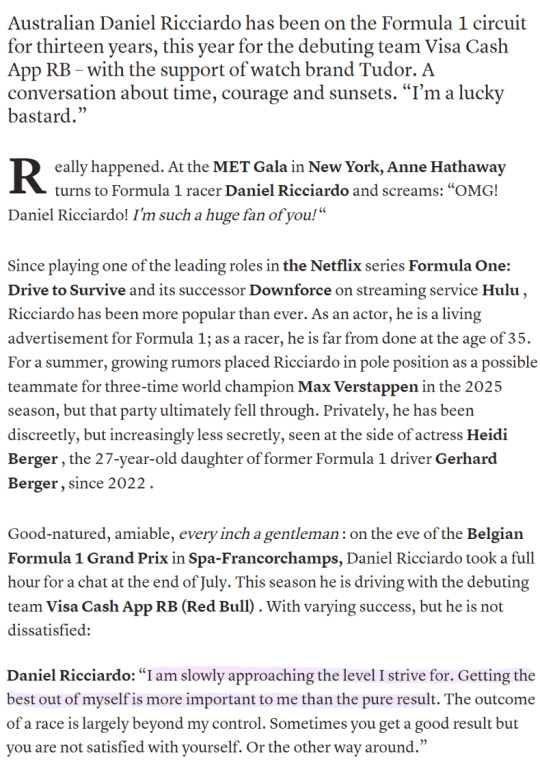




Daniel Ricciardo reflects on Formula One, Life and Time in a newly-published interview with Style from the 2024 Belgian GP at Spa-Francorchamps
via: Style | Formule 1-coureur Daniel Ricciardo: ‘In de race wil ik zo vlug mogelijk gaan, in het leven zo traag mogelijk’
#some of this interview made me a bit sad to reflect on#but I also thought some of his answers were pretty insightful and interesting - and not just answering the same questions he has before#all this tudor promo being released now makes you wonder how they feel about the post-Singapore fallout#daniel ricciardo#dr3#belgian gp 2024
131 notes
·
View notes
Text
i needed to express a sentiment in the creative stylings of @dunmeshiminimumwage
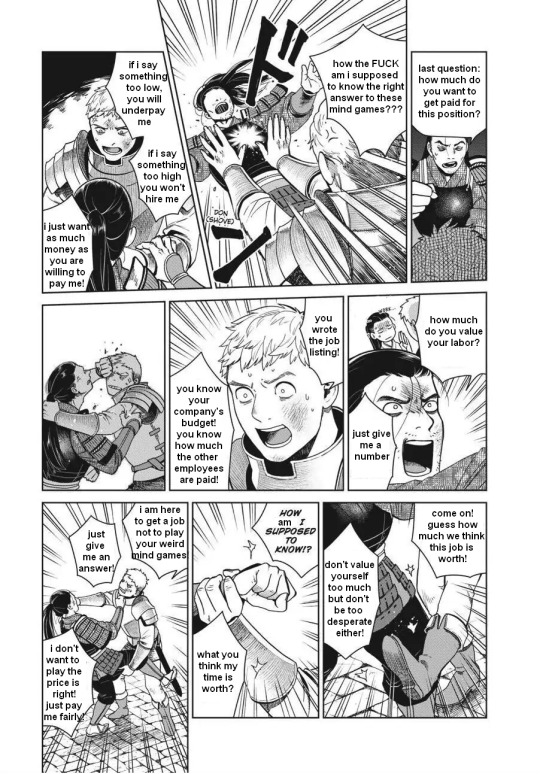
#eliot posts#dunme#delicious in dungeon#dungeon meshi#sorry to put toshiro in the roll of shitty job interviewer lmao#but he was the best fit for ''guy that wants me to read their mind''#laios being my internal monologue here#i was on my THIRD interview of the day i was Dying#tho since the prev two interviews i had were for similar positions and told me their salaries outright at least i could use that number#(though tbh my work persona is more of a kabru. my customer service voice is unparalleled)#(at my first job even my coworkers thought i was sooo cheerful til i got too comfy and casually made a joke abt wanting to asphyxiate on a#plastic shopping bag like a sea turtle. in front of my sweet elderly coworker. oops!)#(also this job was during quarantine and after weeks of working together i took my mask off in front of one coworker for the first time#and she called like half the department over from their registers to look at how pretty i was??? prettyboy powers unmatched ig)#(also my first interview today went SO well i charmed that interviewer so good despite my lack of qualifications)#(she even complimented my social skills and said i seemed like the type who could get along well and make good conversation with anyone!)#(which is important bc i was interviewing for an elder care position. also old people especially tend to think i am a Delightful Young Lad)#(unless i accidentally make a morbid joke around them ig lmaooo. or. well. some of them like those too. but not that one coworker lol)#(if only that skill transferred over to actually making friends irl. my autistic ass has so few close irl connections)#(i hope my exceedingly short list of character references does not prevent me from getting hired)#AND ALSO my first job asked the same wage question and i said twelve dollars#and they were like all our new employees start at 7.75#the union insists that we pay all new employees a whopping 50 cents above min wage. (we'd pay less if we could)#like dawg why did you ask that then??? if my answer did not matter at all???
187 notes
·
View notes
Note
the GG assad snub by amc is crazy especially considering the next season is going to be focused on the guy they submitted for supporting. it's honestly upsetting considering how good assad's performance was
I wish I could say this comes out of left field, but seeing how press has evolved over the course of season 2 (Remember how Assad was on all the pre-season SDCC posters, with his face blown up large on the sides of buildings. To being replaced this year by? Ben Daniels?) It's very clearly about Islamophobia. Articles refusing to print his or Armand's name, disapearing from episode press. It paints a pretty damning picture. And to specifically prop up Sam over him, despite the laughable difference in screentime and frankly- plot importance, leaves a decidedly sour taste in my mouth.
#char.txt#interview with the vampire#answered#show writing and press are streams that dont particularly cross but this whole debacle is the source of all of my worry regarding the series#to have the muslim actor playing a muslim character be the only one who is being treated like this By The Production?#it makes me question how they'll treat Maharet/Mekare/Benji and their performers#the awards are meaningless because amc isnt going to cancel the show and genre series never get their due#but the way you prioritize actors over another says a whooole lot
62 notes
·
View notes
Note
Do you think about how by the end of it all Madeline was the only one who had the actual permission to read Claudia's diaries-how Claudia's last words were for her and only her ( the audience weren't allowed to hear it either; her whole life laid bare for our consumption which she never agreed to- but her last words will always be for Madeline only).
is the personification of claudia’s diaries as her lack of agency something i’m sensitive about? yes. she let madeleine shoulder that burden with her and madeleine’s first action after being given this gift was to help claudia start to cut off the codependency her and louis formed
#no nuance but essentially that’s how i viewed madeleine answering louis’ questions at her#interview with the vampire#claudeleine
34 notes
·
View notes
Text
“Sometimes I do have to work on that…”
Saskia Reeves and Gary Oldman on finding comedy in the seriousness - and what she has to remind herself in those moments - while filming Slow Horses together.
#she’s so cuuute#i love how offended gary seems on her behalf when the interviewer asks if she struggles to keep a straight face on set#and she immediately looks at him when she’s trying to think of how to answer#‘you’re focused 😠’#and then goes on to explain how they go about it during filming#and his little chuckle at her excited inner monologue lol#i love them so muuuch#i miss them#once again#there’s also no question that these two need to be paired up for any promo they do for s5#saskia reeves#gary oldman#catherine standish#jackson lamb#slow horses
27 notes
·
View notes
Text

?
#wonder if those rumors about de2 being developed alongside de are true#and that it’s basically finished#there’s also that interview the director made about how fans wouldn’t have to wait too long to get some answers to questions de left open#but that was before he got laid off lol#just give me more vinh content please#life is strange#life is strange double exposure#max caulfield#safi llewellyn fayyad#vinh lang#amanda thomas
22 notes
·
View notes
Note
almost all s8 opinions regarding sam make me want to tear my hair out but what do you make of the takes that we can't really blame sam for s8, mainly not looking for dean/quitting hunting because it was "out of character"?
not just the you know who shippers who say this either btw I've seen so-called sam stans say the same
the evidence to this claim always seems to be that jared supposedly didn't like it either (which may very well be true idk the source) but I have to wonder if jared only said that or something similar because fan reactions to s8 sam began affecting him too
quite simply, i just don't agree with or enjoy interpretations that genuinely and earnestly refer to it as sam 'not looking for dean' in any context that's intended to be from sam's point of view because that's very much what dean considers it to be because he knows that he wasn't dead in the soul-had-left-his-body sense and he considers sam's adherence to his own perceived death as abandonment which is the major culprit of his own, sam's as well as the narrative's perpetuation of the idea that sam 'didn't look for him'. like this exact idea from sam's own pov is touched on in the first episode of season eight when sam is at his most confident in his independence away from his and dean's relationship:


then based on bobby's reaction to sam's own recount of dean's death to bobby in 8.19, it does seem evident to me that sam neglects to retell his own pov and he tells bobby that dean was in the same purgatory they were currently in, which is why bobby reacts with disbelief (because if you knew where he was, why didn't you attempt to save him?) and why sam's response is to bring up the previous 'agreement' he and dean had about death.

i have my own qualms about bobby's disillusionment re: the agreement as a 'non-agreement' and that he 'taught [sam] that' based on the actual events of 6.01 and the fact that bobby does indeed leave dean out of hunting at sam's will and the only plausible point at which it could have become a non-agreement is during the 6.11 and 6.12 conflict that is regaining sam's soul (without sam's consent, twice fold, but i consider soulless!sam to be more of a direct victim of being resouled than i do sam because of his active agency against it. sam's agency was preceded in his dying wishes and are therefore passive). bobby's reaction does, however, add to the already narratively skewed perspective of sam's decision where there is already that prioritisation of dean's 'didn't look for me' on account of the fact that bobby's own role as patriarch does narratively match dean's, along with bobby's position as a character who is narratively third to sam and dean's relationship (which then then bleeds into both sam's and the fandom's own interpretation of it, i think; sam also begins to doubt his decisions more which is also related to how the trials turn into his own suicidal ideation).
the conflict regarding which brother takes on the trials is very much foundational within sam's own view of a light at the end of the tunnel and his desire to leave the life and dean, at multiple points, within conversation about why he should be the one to do the trials, reiterates sam's own desire for normalcy away from hunting, within what dean himself desires for sam's life, which bring us back to the root of the issue that is dean's fear of abandonment (8.03, 8.14).




sam's own desire or attempt to leave the life seems to be fundamentally Wrong or is at least disproved of until dean approves of it/whenever it's part of dean's ideal for sam. 8.01, "so… free will, that's only for you?" the greatest sin is to disobey your patriarch; i think the culprit here re: sam's own person, just like it was with season four and the beginnings of soulless!sam, seems to be sam's rejection of the dynamics of his and dean's codependency in favour of his own attempt at independence. there's also the idea that dean would rather complete the trials that have a possibility of death than have sam go through the trials, die, then 'leave' dean to face the idea of living a life without sam—and he attempts to make this decision by on his own, without sam's input.
generally, i don't believe sam needs any excuse(s) to live a life outside of dean but the narrative's own facilitation of sam back into the non-role (the struggle to fit into the role) of his and dean's relationship, the dichotomy of monstrosity, the cycle of abuse, the patriarchal structure etc. etc. after his attempts at independence are endlessly interesting to me and although this isn't yelled at you through explicit exploration, i do consider aspects of sam's history with mental health to be relevant within several aspects of season eight, but mostly being related to sam's decision to leave hunting specifically within the context of the year between seasons seven and eight (especially after all that is seasons three to seven) as it's explored through character mirorring and subtextual acknowledgement in 8.08. ultimately though, i think the major aspects of sam's decision to leave revolve around 1) grief and sam's avoidance of his grief, which is pretty well represented by his initial reluctance to name riot and explored through sam and amelia as mirroring characters (how blatant it is pisses me off a little),





and 2) the very basic building block regarding sam as a character that is his desire to leave the life. quite generally, i think the fact that through dean's own conflation of family and hunting (on account of john's own pov that through choosing college over hunting, sam had also chosen college over family) as well as dean's own pov prioritised through his and sam's relationship along with the previously mentioned structures, the idea that sam, too, is therefore unable to leave the life or subvert any of these structures without it being perceived as leaving dean or forsaking family is pretty neglected within a lot of interpretations of sam as a character. i think dean very much keeps sam tethered to the life either through sam's own ability to choose dean and their conflated lifestyle over something/someone else (later season one, season two, three, later nine to fifteen) (there's also the guilt tripping) or as a result of being preoccupied in a way that inhibits his idea of normalcy (his monstrosity in seasons four and five), but on account of the dynamics and his and dean's relationship, sam is unable to reject their codependency which perpetuates hunting and SamAndDean as existing synonymously (an ideal that originates and is emulated from john's ideal of their family within the ultimatum of forcing sam to choose either their family and hunting or his aspirations then viewing sam's choice manipulatively, since he's one the that fabricated and fored the choice upon his child, as abandonment). i mean, even when sam was hunting without dean as soulless!sam, on account of the agency and autonomy sam was able to achieve due to the differences between s!sam and sam's priorities due to the difference between then (the soul lol), s!sam's rejection of his and dean's relationship did become evidence for his monstrosity. which is, of course, punishable by (possible) death should dean decide that the dichotomy will not stretch to accommodate said monstrosity.
season eight, to me, is when these characters first start feeling a bit like cardboard, especially due to how wittled down to its core sam and dean's dynamic is represented. this is the most boring and basic version of How They Work at this point in the show and even then people explain their simple and cardboard-ish behaviours away with explanations like saying they're 'ooc'. sam's state of mind is pretty straight forward if you know where to look; sam taking his entire family's death as his sign that he's able to leave the life is not out of character to me at all. kill the supernatural appointed patriarch in your head.
#also i've said this before but the cast‚ specifically jared and jensen‚ are part of the fandom to me#and their interpretations of these characters mean just as much to me as any other fan#which is to say the interpretation exists for me to critique to develop my own#unless our interpretations do align or agree in some way shape or form#like to me‚ their involvement in the show and with developing the very same characters for whom my interpretations exist for#does warrant respect and a greater voice when it comes to what the story itself (and these actors) is (are) trying to tell#but ultimately it's just as subjective and able to exist synonymously as every other interpretation#most of what i've seen from jared around the time of seasons eight and nine are mostly involved with his defending sam from#and disagreeing with a lot of the interpretations that leak through into the questions people asked him at cons or during interviews#there is suchhh a palpable difference between how jared answers questions relating to sam's inner world#before season eight vs after season nine‚ especially during shared panels‚ that is very telling#quaerit#se referat
27 notes
·
View notes
Text
I know tboy Daniel is real because the level of horniness reached in 2x05 could only be achieved by a guy a day after his tshot
#how do i know this?#don't ask questions you don't want the answers to#anyway as someone on T i relate to Daniel “horndog cumdumb dogboy” Molloy#interview with the vampire#iwtv#daniel molloy#also i meant to write cumdump on the earlier tag but cumbumb also works.
24 notes
·
View notes
Note
OMG U WROTE SMTH FOR THE PADEL DATE??? 🥹🥹🥹 i would be sooooo interested to read it (i love everything u write, ur way w words is so beautiful) no pressure ofc!!!!!! 😊😊😊
aww thank you anon, you're very sweet <3 anyway, im easy to convince with nice words and praise so here you go!
-
“This was surprisingly fun.”
“Surprisingly?” Charles asks, but he’s smiling. He’s glad Max had fun, even if he lost.
Max laughs. “It is surprising, at least to me.”
“For me too,” Charles admits, cupping the back of his neck. “That’s not strange, I think, we never hung out before.”
“That’s because you hated me, but I finally managed to wear you down.” Max teases, eyes turning into half-moons.
Charles giggles. “You did, it just took you a while.”
Max shrugs. “Worth it, though,” He says casually. “Kid me would have been ecstatic.”
He pauses. “He would be?”
“Of course. I always wanted to be your friend.”
“I—,” Heat creeps up his neck. “Oh. I did not know that. I thought you hated me.” Too.
Max gives him a strange look. “No? You made me angry sometimes, but that never lasted long, and it was never bad enough for me to hate you.”
Charles opens his mouth, but no words come out. His face feels like it’s on fire.
“Hey, it’s okay,” Max’s hand comes to rest on his shoulder. “You’re allowed to feel different, I know you didn’t like me much, that’s fine.”
To kid Charles, Max’s kindness would’ve come as a surprise. To him now, all he can do is wonder why he ever thought otherwise. “It feels childish now, you were never mean to me.” You just beat me, he thinks, childishly, like that makes sense.
“But I beat you,” Max replies, easily, and maybe it does make sense. “It’s what I like about you anyway, and that’s why I wanted to be friends with you.”
He gives him a dull look. “Because you beat me?”
Max snorts unattractively, smile returning. Charles can’t look away. “No, mate, because of your drive to win. Losing wasn’t good enough for you then, or now. I felt the same. I guess I wanted to be friends with someone who I thought understood.” His voice turns soft at the end, shy.
“That’s… sweet,” Or cute… There’s no other way to describe it. “I’m happy that we’re friends now, though.”
“Does that mean I’m allowed to call you Charlie?” Max says, and he’s joking, but it makes Charles duck his head down in embarrassment.
“I’d like that.” He mumbles, and Max’s smile brightens.
“Okay then, Charlie, I had a lot of fun hanging out, we should do it again some time. I’ll see you in Austin, yeah?”
“Yeah, of course. I’ll see you there!”
#answered ask#my writing#lestappen#i was talking to ellie about the double interview and how insane they were there as well as in brazil#and then i questioned 'what changed?' and. the padel date... it started after the padel date... so i wrote this! hope you like it <3
105 notes
·
View notes
Text
david in this part of this fucking interview is just like me fr tho like he makes everyone uncomfortable by talking very directly about death and then immediately starts talking about roger completely unprompted right after 😭
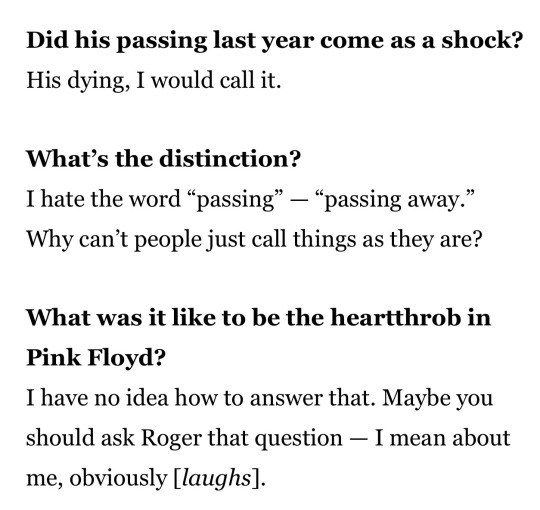
#lena.txt#me when i'm normal#david gilmour#roger waters#pink floyd#watermour#otp: our roles were complementary#also the flow of the conversation is so bizarre#like how do you go from talking about the distinction between passing and dying to asking how it felt to be the heartthrob of pink floyd#like the interviewer could’ve been like ‘oh yeah that’s a good point so my next question…’ like lmaooo#maybe he made the interviewer uncomfortable by speaking so directly about death who knows#i like what he said tho like… he was real for that#also i mean technically he was promoted to answer the question but he ain’t need to bring up roger at all#but clearly hearing heartthrob somehow made him think of roger so like idk man#obviously he’s just tryna get his digs in but like he goes about it in the gayest fashion#i must compliment him on that 🙂↕️
9 notes
·
View notes
Text
Armand and the Romani
I’ve mentioned many times now that I think it would be really interesting and fitting if Armand in the show was Romani and that’s my personal interpretation of his character until proven otherwise. I don’t think it’s necessarily very likely going to be canon, especially when writers rarely remember Romani people exist, but like I’ve said this is like the only show in the world I think could be smart enough to understand how deeply the history of race and racism in Europe (which we know they’re going to address) is intertwined with the history of the Roma people, so you never know. I’ve seen an interesting theory that Armand could be a Tatar and I think that’s the most likely route they’re going to go, but I think him being Roma or some other ethnicity is still a possibility. Furthermore, because of the Roma people’s unique history he could actually be both Tatar and Roma at the same time, especially if he’s from Ukraine like in the books (more on this later). I wanted to elaborate on why Armand’s character and IWTV in general resonate with me so strongly, why I think Armand being Roma could bring a lot to the show and fit thematically, and how if Armand had a Roma background it would influence the way he acts.
Just as a foreword this post is long as HELL as I’ll be talking about Roma people with an assumption that most readers don’t know much about them, and it involves heavy generalization by necessity. I want to emphasize that Roma people are a very heterogeneous group that have very diverse experiences and practices depending on where they live, my experiences don’t apply to all Roma, and I’m not speaking for all Roma. I don’t know much about the Roma in France or Ukraine (which would be relevant for this conversation) other than what google can tell me and I don’t really trust it because much of the information you find on the internet is written by non-Roma people. So when I say something is a part of Roma culture, I mean really that it’s in my subjective experience a part of the traditional Roma culture in my country. The customs may vary a lot even between families in a same region, and the modern Roma and those with mixed ancestry (like me) don’t always follow traditions. I feel I need to stress this because there are a lot of (often negative) misconceptions of the Romani and I don’t want to further contribute to them or just replace them with different misconceptions. Content warning for discussion on sexual and racial violence and the Holocaust.


*
The history of the Roma people
The Romani (also called Roma, Rom and other variations) are a traditionally nomadic ethnic group originating from the northern India. The Roma are often confused with other itinerant people like Irish Travellers and the Yenish but are a separate group. Note also that the word ‘gypsy’ is considered pejorative and most Roma people dislike being called that, and the Roma have nothing to do with the country of Romania, the names are etymologically unrelated. The Roma people are divided in many different subgroups, and many facets of the Roma culture are easier to understand if you know that it was originally a clan culture like many nomadic cultures.
The Romani diaspora has spread to everywhere in the world (the biggest Roma populations are in U.S and Brazil) but is the most concentrated in Europe where they came through Persia in the Middle Ages, with most European countries today having a Roma minority of 0,5%-8%. The Roma population is estimated to be 10-15 million, but nobody knows for sure because many Roma aren’t included in censuses, many Roma people choose not to disclose their ethnicity due to discrimination, and some people who have Roma parentage don’t identify as Roma. The Roma identity is strongly tied to the community. A person who’s adopted or marries into a Roma family may in some cases be considered Roma regardless of their ethnic background, and an ethnically Roma person who doesn’t have connection to the Roma community and doesn't follow traditions might not be considered a real Roma (in practice the latter situation is much more common than the first one). This is relevant when talking about someone like Armand who if we follow the books was taken from his family when he was young and adopted by a white man. Regardless, the Roma are Europe’s largest ethnic minority. I don’t think statistics really matter in a fantasy horror show but it would be the most likely scenario for someone with Armand’s appearance who was born in the 1500s Europe to be Romani.
I assume the show Armand’s character and story may be largely similar to the books based on what we’ve seen, him just having been older when he was turned into a vampire, though it's unclear is he still from Ukraine. In the episode 2 we see him refer to his prayer in a language that Daniel thinks is ‘Kazakh, or 'somewhere in the Crimea’. Wikipedia suggest that it’s actually Uzbek, though we don't know does it mean Armand is definitely from Uzbekistan. Regardless, him using this language without even thinking when talking about his praying makes me think it may be his mother tongue, and we’re probably meant to think that he’s from the Eastern Europe/Central Asia region. I’m personally suspecting he could still be from the Ukraine region like in the books considering they had Daniel think of Crimea. Him using the name Armand Marius in France which is essentially a patronym also makes me think that he could be from a Slavic country. If he was Roma or from other nomadic tribe he could’ve also easily spent time in several countries. Although there is Romani language that is related to Sanskrit, most Roma speak as their native language whatever is the majority language where they live. Many Roma speak multiple languages, especially if they’re nomadic. From what we’ve seen of Armand speaking, Assad does a great job at making his accent vaguely sound like many different accents but not quite like any of them.
One of the ways the Roma are a unique group is that they’re one of the very few ethnicities in the whole world that don’t associate themselves with any country or place. Typically, even other nomadic peoples have some distant homeland or place they see themselves as connected to. The Roma don’t feel connection to any specific country or place; they have no homeland and they don’t want one either. Although in people’s perceptions the Roma are practically synonymous with free-spirited wanderers, most Roma in the modern time are sedentary, and historically when the Roma people have wandered it has often been because of persecution or trying to make a living, not by choice. Freedom and independence are important values for the Roma people, but more in the sense of being allowed to be themselves and live how they want, not necessarily physical roaming. It’s much more common for Roma people to dream of stability and having a home and secure job than of being able to wander.
Many of the perceived modern problems among the Roma can be traced to the change of work and industry from the late 1800s to the early 1900s. The industrialization and urbanization made most traditional Roma professions such as blacksmiths, craftsmen, horse traders, animal trainers and travelling salesmen and entertainers obsolete. Even though there was always prejudice against the Roma they also used to be respected for their expertise on those areas and there was positive interaction with the majority population too. Then suddenly they lost the chance to practice their old professions but lacked societal and monetary capital to learn new ones, which led to mass unemployment and poverty that still exists today. This not fitting in the modern society is a common Roma experience. In the books I feel this is reflected when the vampire characters seek ways to connect with the modern world and humanity. Armand sees Louis as such possibility, but as he in the end tells him ‘You are as cold and distant from me as those strange modern paintings of lines and hard forms that I cannot love or comprehend.’
The Roma people are defined by the dichotomy of being perpetual outsiders who never fully integrate anywhere, and on the other hand being chameleons who adapt anywhere. They often adopt the customs, language and religion of the majority population, while maintaining their own. The Roma have likely been in Europe for at least thousand years, and the earliest records of them are even older. Despite this the Roma have arguably never been fully a part of any wider society or fully accepted. It can be talked about the Roma society rather than just the Roma culture, because the Roma people often form almost a separate parallel society wherever they live. It’s common that the people from the main population don’t have any Roma friends while the Roma people don’t have any friends in the majority population, and the Roma may have little interaction and connection with the wider society. The Roma have been ostracized, but because of this long ostracization the Roma also don’t trust in the society around them and may try to limit their interactions with the majority population. As a Roma you can feel like you live behind a veil that separates you from the rest of the world and you can’t really touch and see each other. Many Roma experience the sense of profound loneliness and of rootlessness, a feeling like you don’t have the past or the future and nothing really matters. Everything above makes Rice’s melancholic, drifting, existential vampires very relatable to me.
The Roma people have been and still are associated with crime, dishonesty, uncleanness and supernatural. The Roma have often been accused of witchcraft, satanism and stealing children. Depending on the time and place people have tried to either banish or forcibly assimilate the Roma. In many countries it was legal to kill a Roma person without impunity. Historically The Roma have often been slaves or otherwise forced into labor or prevented from moving freely. For example, in Romania the Roma were kept in chattel slavery for centuries over 500 years until 1860. The first Roma in America arrived there as slaves too. Interesting in the context of the show, Spain sent Roma slaves to their Louisiana colony and at least according to Wikipedia there is an Afro-Romani community in St. Martin Parish due to intermarriage of African American and Romani slaves (I would’ve been interested to read more about this but couldn’t find much online sources). In the books Armand was abducted by the Tatars to be sold as a slave. Nowadays the term Tatar is used for different Turkic ethnic groups, but historically it was used to refer to anyone who came from the Northern or Central Asia (Tartary). The Roma people were also commonly known as Tartare/Tattare, as they came from the East too. Coincidentally some Roma are thought to have arrived in Europe as slaves of the Tatars or the Mongols. At the same time the Crimean Roma and the Crimean Tatars have a very close and unique history to the point that the Crimean Roma are commonly considered a subgroup of the Crimean Tatars. So it would actually be possible that Armand is both Tatar and Roma, especially if he comes from that region!
2. The Romani culture and relations with other people

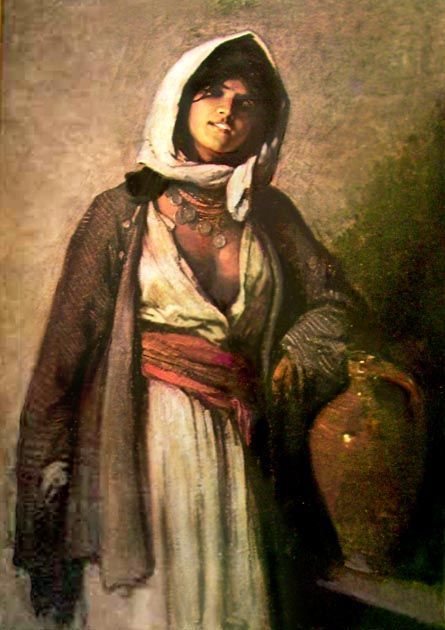
The Roma people are often highly fetishized and oversexualized, and viewed as promiscuous and manipulatively seductive, which can also be seen in how Roma characters are depicted in popular culture. Roma people continue to be victims of sexual assault and trafficking at very high rates. Roma women are often assumed to be prostitutes or sexually available. When you see news about human trafficking in the Eastern Europe, both labor and prostitution, the victims are often Roma even though it's rarely mentioned. Many consensual sex workers are also Roma, but most of them likely wouldn’t be sex workers without poverty and if they had other opportunities. Roma children experience sexual abuse much more frequently than children of the majority population, and they're often viewed as more mature and manipulative than they are. This all reminds me of how in the books Armand was sexualized by nearly every person he comes across even when he was a child or teen. Taking Roma children from their families to exploit them or to assimilate and ‘take the gypsy out of them’ in one way or another has always been common, nowadays this often happens in the guise of child protection. Here in Finland even 50% of the Romani children in 1950-1980 were placed in state care institutions, and this continues to happen in many countries. The less fantastical version of what Armand went through with being abducted and sold and exploited by everyone including his ‘savior’ who tried to sanctimoniously civilize him is what has happened to countless Roma children over the centuries.
The traditional Roma cultural practices can be considered (when heavily oversimplifying) to be built on three pillars that are connected to each other: respecting elders, concepts of purity and impurity, and honor and shame. Most cultures probably consider respecting old people important but in the Roma culture this is deeper and more extensive than usual. Older people are treated and spoken to with very high respect, people often address even their own parents with the formal ‘you’. Being older is on itself seen as a sign of authority and younger people must always listen to their elders. This respect shows up in everywhere in daily life in both practical and symbolic ways, older people take the food first, if the house has more than one floor the younger people don’t live in the rooms above older people, shaking hands with or sitting next to an older person may be considered inappropriate because they imply an equalitarian relationship etc. It’s very difficult for a young Roma person to say no to an older person or express anger or anything that could be seen as disrespectful. The Roma culture has anarchistic qualities because the Roma don’t necessarily acknowledge the state’s authority, and intracommunity hierarchies are quite fluid and decentralized, but the older people’s higher status over the young ones is seen as obvious and natural.
Cleanness is another aspect that is very central to the Roma culture, in both literal and symbolic sense (ironically, since the Roma are often seen as dirty). The Roma don’t expect non-Roma to follow or even be aware of their complex system around it (mentioning this because I know some people fear that they accidentally offend Roma if they do something wrong lol). The Roma consider the body above the waist ‘pure’ and below it ‘impure’, and things that touch them are kept separate, and all objects are categorized according to their perceived cleanness. For example, when you come from the grocery store the shopping bag can’t be put on the floor or chair, you can’t sit or lean on the table, hats and shirts are not put on chairs, if a kitchen utensil falls on the floor it may be thrown away instead of washed because it’s now considered unclean etc. Kitchen is the purest place and is kept as clean as humanly possible. The clothes of men and women and people of different age groups are washed separately. When a Roma person grows old they become ‘pure’, and people are particularly considerate not to tarnish them, for example a younger person can’t sit on an older person’s bed and if they sleep in the same room their feet can’t pointed at the older person’s direction. In some circumstances an impure person may be temporarily or permanently banished from the community. The importance of cleanness in the Roma culture goes back to preventing illness in the traditional nomadic lifestyle, and it’s speculated possibly to even further in history in India where the Roma people’s ancestors’, the lowest caste Dalits, responsibility may have been to handle corpses and other unsanitary jobs.
Contrary to the stereotype the Roma are usually highly modest and anything ‘below the navel’ stuff (sex, pregnancy, periods, bodily functions) is rarely discussed. The Roma men and women don’t talk about them at all with each other if they aren’t a couple, and parents don’t usually talk about sex or dating with their children. Casual sex is disapproved. Oral and anal sex are considered unclean. Although Roma people often marry very young (sometimes underage) it’s usually with people of the same age group, people of distinctly different generations having romantic or sexual relations or even talking about sex with each other is a taboo. For example, if there’s something sexual on television the younger people may leave out of respect if there are older people in the room. A pregnant woman may hide it even from her own parents. Much of the Roma customs focus on ‘keeping face’ and maintaining respectful relations with the other Roma and their surroundings and avoiding anything that would bring shame, and this shame can touch the whole family.
Now if we come back to Armand, if he’s a Roma that adds a new aspect to his trauma, especially pertaining to sexual abuse and his relationship with Marius. Sexual abuse and grooming like that are hard to for any child to process, and especially difficult and confusing it would be for a Roma child, when in the Roma culture older and younger people even talking about sex is seen as offensive and older people’s wisdom and authority are seen as absolute. When in the Roma culture sex itself is taboo and wrong kind of sexual activity can make you ritually unclean it would further worsen the trauma that started from his kidnapping and cause immense shame. Since the old people are considered purer than young people a Roma child might also feel like they’re soiling the sexual abuser and blame themself. Death and touching dead bodies is considered unclean as well; a vampire would always be ritually impure. The way Armand is exposed to sex in Venice is pretty much the polar opposite of how sex is treated in the Roma culture. In the books we see Armand struggle with his complicated feelings about Marius and how he resents him but can’t still stop loving him and seeking his approval, or often can’t even express his negative feelings openly. I think it sounds familiar how many Roma people want independence but still feel obligated to respect their elders even if doesn’t always feel right.
I think this respect for elders also shows in how Armand treats Daniel in the show. He’s quite polite towards him and very considerate in trying to make sure he’s comfortable. Although Armand is in his servant disguise for most of the season 1, he notably keeps talking to Daniel in a pretty similar way after he drops his disguise. This maintaining the appearance of respect even when you’re angry at the older person is typical for Roma people. Armand is chronologically much older than Daniel, but Daniel is still physically an elderly person which is seen as automatically deserving high respect in the Roma culture. Armand and Daniel possibly having some sort of romantic relationship in the past complicates their dynamic.
3. The Romani from the WWII to now
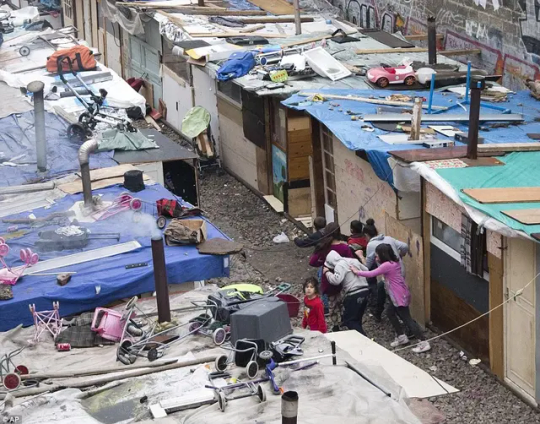
It's hard to convey how extreme the prejudice and hate towards the Roma people is still in the 2020s Europe. Majority of people have highly negative views on the Roma. In the polls most respondents say they don’t want to work with or employ Roma people and wouldn’t want their child to date anyone who’s Roma. Majority of the Roma live below the poverty line, often in segregated slums around cities or villages in countryside, many of them without electricity or running water or access to other basic services like healthcare. Depending on a country the life expectancy for Roma people is 7-20 years smaller than for the majority population. Housing for Roma people has been a big problem for a long time, with many Roma being homeless or living in subpar settlements that the officials often destroy and force Roma to move. Nobody wants to rent or sell to Roma people or be their neighbor, so the Roma population often segregated from the majority population. Illiteracy is still common. Many Roma children don’t go to school; if they do, they’re often put in special classes or special schools where they’re separated from other children and receive substandard education. If they receive proper education they can’t get a job because nobody will hire Roma people. Many companies and places refuse to let Roma people enter. Hate crimes and police violence are common. As a Roma you can feel like you’re leprous, nobody will talk to you or come close to you.
Typical for anti-Romani racism is that people don’t see it as real racism and consider it justified and something that Roma people deserve. There also isn’t much difference how left-wing and right-wing people view Roma. Racism against Roma people is widely accepted and normalized regardless of political affiliation. In Europe the Roma are singled out and many people who aren’t (at least on conscious level) racist towards other ethnicities still despise Roma people. A case that has stuck with me and I feel embodies how the Roma are dehumanized is from Naples, Italy in 2008 where the beachgoers continued their day sunbathing and picnicking near the bodies of two drowned Roma girls. Though anti-Roma racism exists everywhere, it’s where the European hypocrisy is its most obvious. The Europeans often talk about the history of racial segregation, slavery and ethnic cleansing in other places like it’s something distant and absurd to us, when systematic segregation continues to be everyday to Roma people here in the present day.
The position of the Roma people is unique because much of the discourse around racism in Europe is focused on immigration and assumptions that people of color always come from 'somewhere else', but the Roma’s ancestors have often been here as long as the white Europeans’ ancestors. Racism against the Roma people predates the modern concepts of race, scientific racism and the modern imperialism and colonialism. The Roma are a large group that certainly hasn’t been living in an isolated bubble separate from the rest of the world and they’ve had a significant influence on the Europe’s culture, but they and their suffering are often invisible and many people are completely ignorant of it. The Roma have oral tradition and there are few Roma politicians, journalists or scholars so they lack platform to make their issues known. The Roma have become a sort of permanent underclass in Europe.
We know that the s2 takes place in the 40s in the immediate aftermath of the WWII and deals with it in some capacity. The hatred towards the Roma people can be seen as having culminated during the WWII when anywhere from 250,000 to 2 million, or 25% to 80% of the European Roma were killed during the Holocaust. The figures vary so much because the Romani genocide is severely understudied, we don’t know how large the Roma population was, and there weren’t as meticulous records of the Roma victims as there was of the Jewish victims. The Romani genocide (sometimes called Porajmos) has often been treated as an afterthought but for the Roma people it was absolutely devastating. The Roma were classified as racially inferior and were killed in concentration camps and in shootings by mobile killing squads. Roma people were often sterilized and used for medical experiments. In some countries like Croatia and the Netherlands practically the entire Roma population was destroyed.
After the war there was little sympathy for the Roma. Many Roma became stateless refugees, and Germany didn’t acknowledge what happened to the Roma as genocide until decades later, which prevented the survivors from seeking restitution. The post-war trials didn’t cover the crimes against the Roma people. Attempts to assimilate the Roma and wipe out their culture continued in many countries. There still isn’t widespread acknowledgement and understanding of the Romani genocide and how it’s a direct cause for the Romani people’s current situation, even within the community. Deep poverty, illiteracy and lack of education and social institutions has led to there not being full consciousness and collective memory around the Holocaust among the Roma like the Jewish people have.
What happened to Roma varied a lot from country to country. France has always been rather hostile to the Roma, and it was also a ‘forerunner’ in the modern racial discrimination against them because it started to register Roma in the early 1900s and giving them ID cards that categorized them differently from other travelling workers. During the World War II some French Roma were deported to nazi-run concentration camps like Auschwitz, but most were detained in internment camps in France that were created under the nazi authorities but run by the French authorities. Although not technically extermination camps, their living conditions were similar to concentration camps and thousands of prisoners died from disease and hunger. After the German occupation ended the internment camps stayed in operation until 1946, two years after the liberation. The special Roma ID cards were used until the late 60s. Some people have noted how in the show Santiago seems to work as the ‘front’ for Theatre des Vampires while Armand stays in the background. I think it’s likely related to their races in any case, but this arrangement makes sense especially if Armand is Roma because it would be very diffcult for any company or organization to be openly led by a Roma person in France during the WWII, and the years preceding and following it. Even in the 2020s many people and companies refuse to do business with Roma people, and back then it would’ve been dangerous. Also, whether Armand is Roma or not, many people are probably going to assume he is when seeing a South Asian looking French man, so that’s going to be in subtext regardless.
I think all this would make Louis strongly sympathize with and relate to Armand – and also to see him as more vulnerable and less dangerous than he really is. However, Armand might not see the things in the same way. After Louis is turned he still feels on personal level engaged with what is happening in the society and feels anger over injustice and continues to see black people as his people even when he becomes increasingly distanced from the community. But when a Roma person is taken away from the Roma community they’re not necessarily perceived as Roma by other Roma or even themselves. You might never become a part of the wider society either, you just become ‘no one’. Armand might not think of Roma as ‘his people’. Because the Roma already see themselves as outcasts and separate from the rest of the world and people, for someone who becomes a vampire that could mean complete emotional disconnect.
Perhaps because the Roma perceive themselves as separate from the wider society, it’s not typical for Roma people to be interested in politics or activism or influencing the wider society at all. This is a big generalization because of course there are Roma activists and Roma organizations, especially since the 70s, but by and large Roma people tend to be more or less apathetic towards politics and analyzing the forces behind it. Many Roma don’t vote (and needless to say many countries make it difficult for them) or participate in politics in any way. Political movements, rebellions and revolutions mean nothing to the Roma people. Every so-called revolution or change either has had no influence on the Roma people’s life or made it worse. The Roma people don’t trust non-Roma people, and the organizations and movements have usually been uninterested in involving Roma people anyway. As someone who is interested in politics and activism when I try to talk about stuff with any other Roma person I often get a ‘why does this matter’ or ‘what does this have to do with us’ reaction. The Roma are very used to their situation because they can’t remember or imagine it ever being different, and they often have an attitude that could be described as ‘it is what it is’. Armand might not feel similar anger Louis feels. Armand’s indifference and distaste towards societal institutions is reflected in the books too:
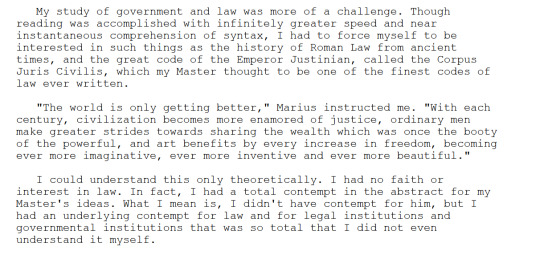
Armand would also perceive his own and Louis’ race differently than Louis does. For the Roma the world consists of people who are Roma or non-Roma (Gadjo). The Roma don’t really make differences between different races, they’re all Gadjo. When Armand meets Louis he would see him as a Gadjo man before black man, which I imagine could start to feel invalidating in the long term. The Roma tend to be sympathetic towards any outcasts and accepting of different people, but I think many Roma are also rather ignorant of different cultures and struggles, and they don’t necessarily feel automatic connection with different racialized people. The Roma perceive their experience as unique and something non-Roma people can’t understand. In the end all this means the way Armand views the world could actually be closer to how Lestat views it, and Louis might not find the solidarity and understanding he's hoping for.
4. The Romani family, kinship and spiritual practices
Religion and spirituality are very important to many Roma people. Here in Finland most Romani are deeply religious, much more so than the majority population that is pretty secular. Most Roma are Christians or Muslims, mostly different Christian sections in the Western Europe and Islam in the Balkans. The Roma in Ukraine are mostly Orthodox Christians or Muslims, so that would fit too if Armand was raised as a Muslim and didn’t convert later. Relationship with God, seeking forgiveness and sense of purpose, and someone who accepts you as you are, are something that Roma people commonly long for. The Hunchback of Notre Dame should never be used as an example of good representation and I swear this is the last time I’ll ever mention it anywhere, but I always thought this song captures surprisingly well something of how many Roma people feel. Armand’s intense and desperate relationship with religion and the spiritual struggle he and other characters go through is something that is very relatable to me.
With the lack of social structures, stability and purpose, for many Roma people the family and faith are the two most important things in the world. Without them the Roma have nothing. I think this is painfully clear with Armand who was separated from his family and culture, raised by a man who abused and then abandoned him, and literally lost his humanity and connection with God. Both other characters and Armand himself often describe him as this endless empty, hungry void that he is always trying to fill himself with something. Armand is prone to cult mentality and being manipulated in his intense yearning for emotional and spiritual connection.
I think Assad described Armand well when said he isn’t well-versed in the language of love and romance, but he does want it desperately. The Roma’s approach to romantic relationships is complicated because the strict rules of modesty around sexuality mean that they’re not usually explicitly discussed and even married couples avoid showing any affection in public. Historically Roma people have often been prevented from getting officially married so they have developed their own marriage rituals that vary by a country. Although the Roma take their relationship commitments very seriously legal marriage isn’t usually seen as important in the Roma culture and Roma couples may not get married at all legally.
The Roma are also one the very few cultures where in some countries like Finland the institution of marriage doesn’t really exist. The Romani here may get married sometimes but it’s seen as entirely unimportant and doesn’t have any bearing for the relationship, there usually isn’t a wedding or any rituals associated with marriage. A couple who’s committed to each other is seen as having the same status as a married couple. My paternal grandparents have been together for over 50 years and have never been married. Louis’ relationships with both Lestat and Armand would be considered marriage in the Roma culture. Because there aren’t well-established rules of dating and courtship in the Roma culture, forming romantic relationships can be difficult for Roma people. I’m thinking of Armand deeply wanting love but the way he approaches it often being awkward or offputting.
Family is the most important thing and the center of life in the Roma culture. The Romani culture is traditionally patriarchal and considering the importance of age, in practice the ‘leader’ is usually the oldest man of the family. The women’s position is complicated. Men and women are considered to be equals in the Roma culture and older women and their opinions are respected like with older men. Divorce is usually acceptable and isn’t seen as shameful, many older Roma women I know also have children with more than one man and it isn’t seen as a big deal. The ideal Roma woman is intelligent and emotionally and physically strong. At same time there have been and often still are distinctly divided roles for men and women in the Roma culture. Women are responsible for taking care of everything in the household and men for everything outside the household. The man of the house listens to their wife and children’s opinions but he has the final word. Men are expected to be the providers and protectors of their family and it’s something they base a lot of their identity and self-worth around – the most important thing really. I feel we can see a dynamic like this with Armand and Louis - Louis obviously isn’t a woman but he’s much weaker and younger (again, age being very important in the Roma culture). When watching s1 you think Armand is a servant, but if you look any closer, even without knowing it’s a performance, you notice what’s actually happening is that Armand is organizing and taking care of everything in their life. Later he tells Daniel how he’s protecting Louis like always with such a pride.
Another thing I think is worth mentioning that from my experience in the Roma culture physically disciplining children or women is and has been less acceptable and normalized than in the Western and many other cultures. It just isn’t done much, even my grandparents have said they don’t remember their own parents ever hitting them. This doesn’t mean that there isn’t domestic abuse in the Roma families, sadly it’s common in some regions, but it isn’t usually seen as normal and acceptable by the community. The Roma don’t like to involve police but there are many cases where an abusive man has been banished from the community. Also compared to many other cultures it can be less difficult for a woman to leave the man if she’s mistreated, since divorce is accepted and independence valued. I would say that when in most European countries there has often been an attitude that as a man you have a right and even responsibility to hit your wife and children, in the Roma culture it has been more like ‘a real man doesn’t do that’ and if they do they try to hide it. Roma men often perceive themselves as being more respectful towards women than Gadjo men are. When you combine all this - patriarchal society, older men having power over their family being seen as a normal and good thing, but disapproving overt violence within family – I think it would be very easy for Armand to convince himself he isn’t abusing or hurting Louis and is treating him right and being better than Lestat.
Art is very central to the Roma culture, especially music, dance and artisanship, but also other forms like painting and theatre. The first known records of the Roma people already refer to them being musicians. Travelling theatre companies like the one Lestat run away with when he was young were often formed by Roma people. Armand was a talented painter and his love and search for beauty is something that always remains in his story. I found it interesting that this s2 Claudia poster was seemingly inspired by Carmen, one of the most famous Roma characters, and maybe flamenco dancers in general (flamenco being developed in the Roma culture). It tells me that they seem to at least be aware that the Roma people exist if nothing else.
The Roma appreciate beauty and the finer things in life, sometimes in a way that can appear materialistic to the non-Roma people, but the Roma themselves don’t perceive it so. It’s not uncommon that the Roma who’re poor or even homeless still own some jewelry or a nice car. If the Roma people are actually rich they like to show it and are generous in sharing it. Wealth has often been unattainable to the Roma people, so if they have it they don’t see a reason to hide it. Historically the Roma also haven’t trusted banks so they prefer to keep their wealth in physical form. With Armand who grew up in poverty you can see how he appreciates luxury and likes to shower his loved ones like Daniel and Sybelle and Benjamin with it too (again, being a good provider is very important for the Roma men). Sidenote this is another reason why I think the Dubai house’s sterile minimalist interiors were not Armand’s idea because no Roma person in the world would ever decorate their house like that lol.
The way the Roma people traditionally dress differs from the majority population, and their appreciation for beauty and wealth is visible in it too. The clothing has been a way for Roma to show their identity to both other Roma and other people. The rules of modesty influence the Roma people’s traditional clothing and they often avoid showing knees and elbows and the shape of the body. Younger people often wear lighter and older people darker colors. Especially Roma women have dressed in very distinct ways depending on their tribe, for men it’s usually more subtle. The typical Roma men’s every day clothing includes suits, black or white dress shirts, loosely fitting black trousers, vests, hats, ruffles and golden jewelry. Armand’s styling in the show both in the flashbacks and Dubai caught my attention. While there’s nothing exclusively ‘Roma’ in his outfits almost all of them could easily be worn by a Roma man. Most likely it means nothing but knowing how good costume designer Carol Cutshall she would probably try to be accurate.
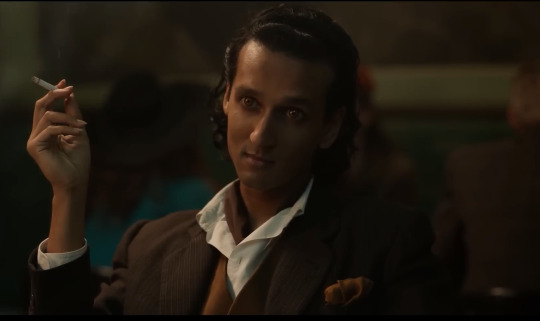
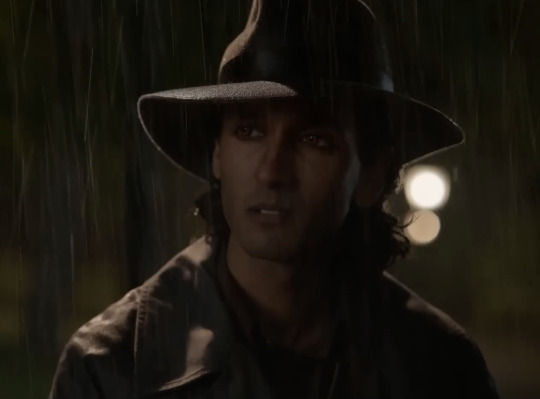
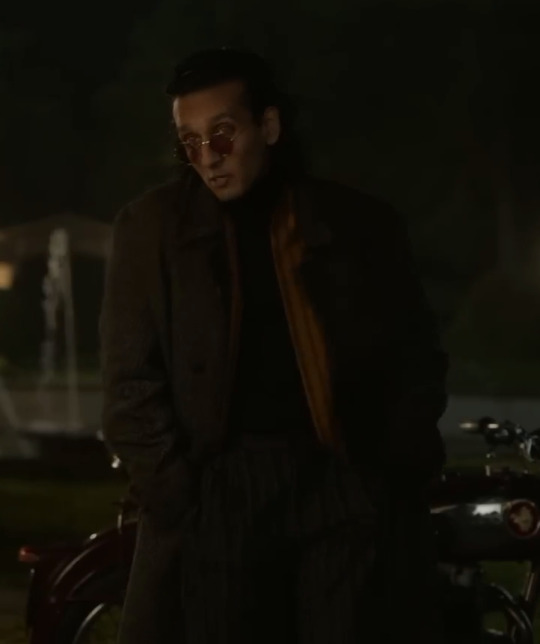

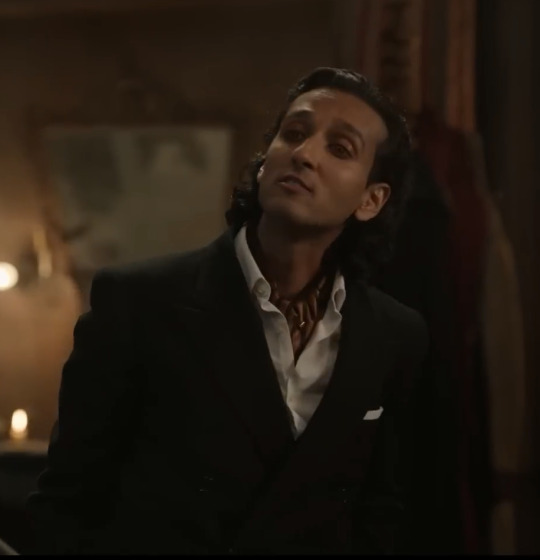

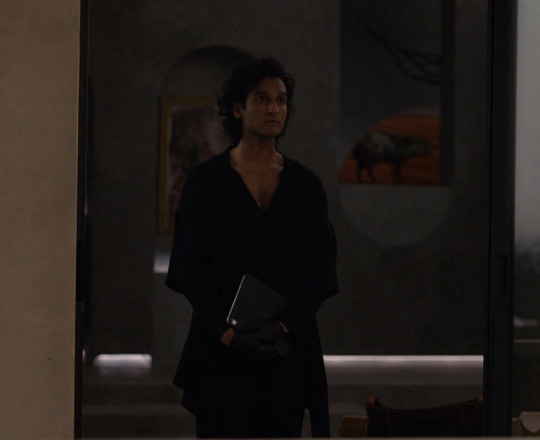
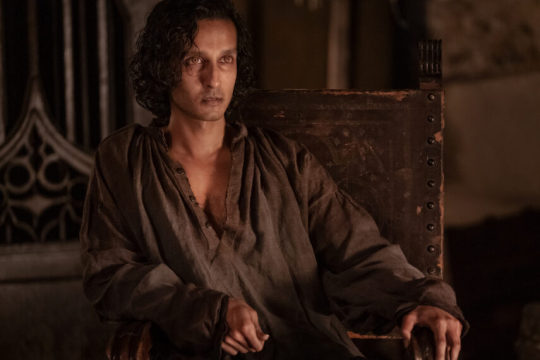
In the Roma culture referring to dead people by their name and showing their pictures is avoided. Traditionally the remaining family moves out from the house where they lived with the dead person, and the person’s belongings and images are burned or otherwise destroyed after their death (at least in Finland this is still sometimes done). It’s out of respect but I think it’s also a response to generations of trauma where there has been so much death and suffering that Roma people need to forget and move on so they can continue living. In the books Armand treats death in the same way; when he loses someone he stops talking about them, sometimes even thinking about them. When he’s abducted he doesn’t mention his father (who he assumes is dead) again and forgets even his own name, because the child he was before he was taken doesn’t exist anymore. Despite being so needy he often just leaves things behind and keeps on moving, like when he simply walked away from Louis. The Roma aren’t prone to nostalgia and they don’t like wallowing in the past or worrying about things that might or might not happen either, it’s all seen as a luxury they can't afford. It still doesn’t make it just disappear. The deep hidden sorrow that Armand and many other characters of the series always carry with them resonates with me as a Roma.
*
Lastly, I want to emphasize this is all just random theorizing and I’m happy regardless of whatever Armand’s background ends up being! I also know some Roma don’t want Roma portrayed in fiction made by non-Roma people at all because they don’t trust it to be done well. There’s also a problem with Roma characters usually being played by non-Roma. IWTV is an exception to me personally because I have an unusually high level of trust in this show’s writing, I love and relate to Armand’s character, and I think Assad Zaman looks like he could believably play a Roma man instead of the usual casting of a white person who looks ‘exotic’. However, like I said in the beginning there isn’t any proof Armand is actually going to be Roma and for now this is just headcanoning and speculation for fun. I also want to say that I hope I didn’t give an impression that Roma people’s life is like constant misery because that definitely isn’t true! There’s a tendency to see the Roma only through their problems when there are plenty of happy and successful Roma people and there has been improvement in the Roma people’s situation even though it’s slow. I also think one of the Roma people’s strengths has always been that they can find joy and humor even in hard circumstances.
If you got to this point I salute you thank you for reading!
#interview with the vampire#iwtv#i'm not joking how insanely long this post is if you still read or even just skimmed it through i'm kissing you on the mouth#i considered splitting it in two posts i hope it's even distantly coherent and not super boring#also if you have any questions i can try to answer lol#mal watches iwtv#iwtvposting#armand#.txt
114 notes
·
View notes
Text
dorothy gees seckler interview with john cale at the exploding plastic inevitable in provincetown mass sept 1966
#ok here's the whole 16min interview bc i don't see it on yt#she mostly asks abt the films & sometimes goes off on these long tangents & he's like uhh i guess so & she's like that's interesting#they talk about symphony of sound tho it doesn't have a name yet#at one point he's trying to explain some piece of s&m gear or something to her#at the very end she asks him how he likes provincetown & he says it reminds him of home#paul answers some of the questions#john cale#paul morrissey#andy warhol#dorothy gees seckler#exploding plastic inevitable#epi#1966#audio#interview#my posts#19660900
6 notes
·
View notes